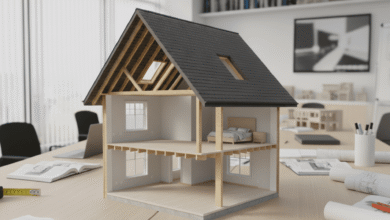First-Time Buyers: Is a New Build Home Right for You?

If you’re looking to get onto the property ladder, perhaps in the company of your significant other, then choosing the right property is critical. Deciding what’s right for you will require weighing a number of factors. But among these, the choice between a brand-new home and a preexisting one might be particularly important.
The Appeal of New Build Homes
Why is it that new build homes are so attractive?
To begin with, they are, by definition, built so that they meet the very latest in building regulations. This, along with advances in materials, tends to mean that modern homes are vastly more energy efficient than their older counterparts.
New build homes also tend to require less maintenance during the first few years of their lives. Everything in the property is brand new, which means that less energy (and money) needs to be spent bringing a given room or feature up to date.
If you’re planning for the future, then you might also have the option of customising a home before buying it. This is most feasible when you’re buying off plan, and the home hasn’t actually been built yet. If you can have even a limited say in the design and construction of the home, then you might stand a much better chance of enjoying it after you’ve moved in.
Government Schemes for First-Time Buyers
First-time buyers might benefit from a number of government-backed schemes. To begin with, they can enjoy a discounted rate of Stamp Duty Land Tax. There’s no tax for the first £300,000 of your purchase, and 5% tax up to £500,000.
Also worth considering is the First Homes scheme, via which first-time buyers might be able to get 30% to 50% off a new build home. This is available only to buyers who intend to actually use the new home as their main residence – or, in other words, you can’t remain at your parents’ and let out your new property.
Financial Considerations
Of course, it isn’t just the price of the home itself that should be considered. The deposit on the mortgage, and its size relative to the total amount borrowed, are worth thinking about. The cost of conveyancing, removals, and taxation should also be factored in.
In taking out a mortgage, you’ll also incur additional fees, which can either be added to the loan (in which case you’ll be charged interest) or paid for up front. Newer properties tend to be more expensive in general, because of the advantages we’ve mentioned.
Potential Drawbacks and How to Mitigate Them
There are other downsides associated with new builds. For one thing, the higher prices mean that the rooms tend to be smaller. If you’re buying off plan, then you might be vulnerable to unexpected delays, and disputes when it comes to the final quality of the home.
The best way to guard against nasty surprises is with the help of a snagging survey, and the right contracts. Researching the developer, and making sure that they have a good reputation, might also help to protect you.
For many first-time buyers, transitioning into a new build home often comes with logistical challenges such as timing, downsizing, or staging belongings for future use. This is where self storage units Bennington can be a valuable solution. These units provide a secure and accessible place to store furniture, seasonal items, or excess belongings while settling into your new space. Whether you’re waiting for your completion date or simply need to declutter during the move, utilizing a local storage facility offers the flexibility and peace of mind every new homeowner deserves.


